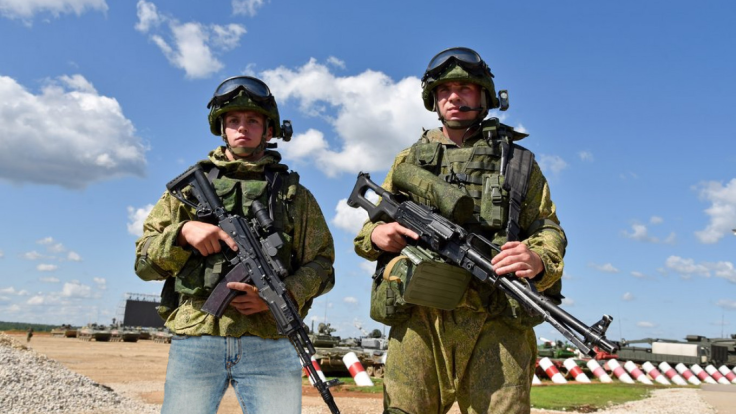
In a bid to fund their country's war effort, scammers originating from Ukraine are employing fake dating profiles to trick gullible Russian men out of substantial sums of money.
The Monetary Army, a group targeting Russian soldiers, police officers, military academy students, and others, employs a wide range of tactics to trick victims out of sums as high as £19,000 to support the Ukranian government. Posing as attractive women on Divinchik, a popular dating app in Russia, these approximately 100 scammers match with unsuspecting men and try to trick them into shelling out certain amounts which will eventually be used for their cause.
Here's how they do it:
How The Ukrainian Scam Group Targets Russian Soldiers
A Monetary Army scammer, identified as Arthur, told the Telegraph that after matching with Russian men on dating apps, their strategy is to lure them into purchasing tickets for fabricated events.
In the course of the conversations, once the discussion progresses towards an in-person meeting, Arthur said his role is to extend invitations to these men for events listed on fabricated website.
These events include theatre productions, stand-up comedy shows, ballets, or film screenings. Unfortunately, for the men involved, these encounters never materialise. These fabricated events are often priced around £35 for a pair of tickets, and the victims, referred to by the scammers as "marks," are pressured to pay using cryptocurrencies.
The scammers promote cryptocurrencies for their untraceable nature, starkly contrasting traditional fiat currencies. Once the victims have paid using cryptocurrency, the scammers inevitably back out of the date. They then feign sympathy and suggest the men request a refund, a process they know is impossible on their fabricated website.
This triggers the second phase of the scam, which is managed through a customer support channel on Telegram. Arthur reveals that this channel is likely operated by the same scammer using another fake profile.
The system on this channel deceptively instructs the men to purchase two additional tickets as a deposit for their supposed refund on the initial purchase. This creates a scenario where the victim can theoretically lose unlimited money, depending on their gullibility.
As Arthur elaborates, the scammers will allege mistakes in the refund form, manipulating the men into further payments. They pressure the victim into sending additional payments, typically doubling the amount each time, to rectify the supposed mistake.
A Deceptive Fundraising Campaign
Dating apps have become a breeding ground for scams. Dishonest individuals use these platforms to prey on unsuspecting victims, tricking them into sharing sensitive details, but some perpetrators face justice.
A recent case involving Mai Watanabe, a Japanese woman who swindled over $1 million from men on dating apps, highlights the potential dangers. Watanabe was sentenced to nine years in jail earlier this year."
According to Arthur, despite typically profiting around £100 per scam, the Monetary Army has reportedly swindled one victim out of a staggering £19,000. While some of the earnings are allegedly directed towards the Ukrainian army, most fund the scammers' salaries.
Unlike Watanabe, many dating app scammers manage to evade capture and amass significant sums of money through their illicit activities. Arthur himself claims to make roughly £1,600 a month from this illegal activity.
Desperate for resources in the war that has dragged on for nearly two and a half years, the Ukrainian army is likely accepting any donations it can secure, regardless of their origin.
Escalating tensions saw both Russia and Ukraine launch drone attacks on Saturday. One such Ukrainian strike ignited a fire at a Russian oil depot, while Russian shelling tragically claimed the lives of four people in Ukraine, according to officials.
Governor Oleh Syniehubov reported two additional fatalities and 22 injuries in Ukraine's northeastern Kharkiv region on Saturday afternoon. An oil depot in the Tsimlyansky district of Rostov Region, far from the border, was set ablaze in the early hours of the morning. This attack marks the latest long-range strike by Kyiv's forces.







